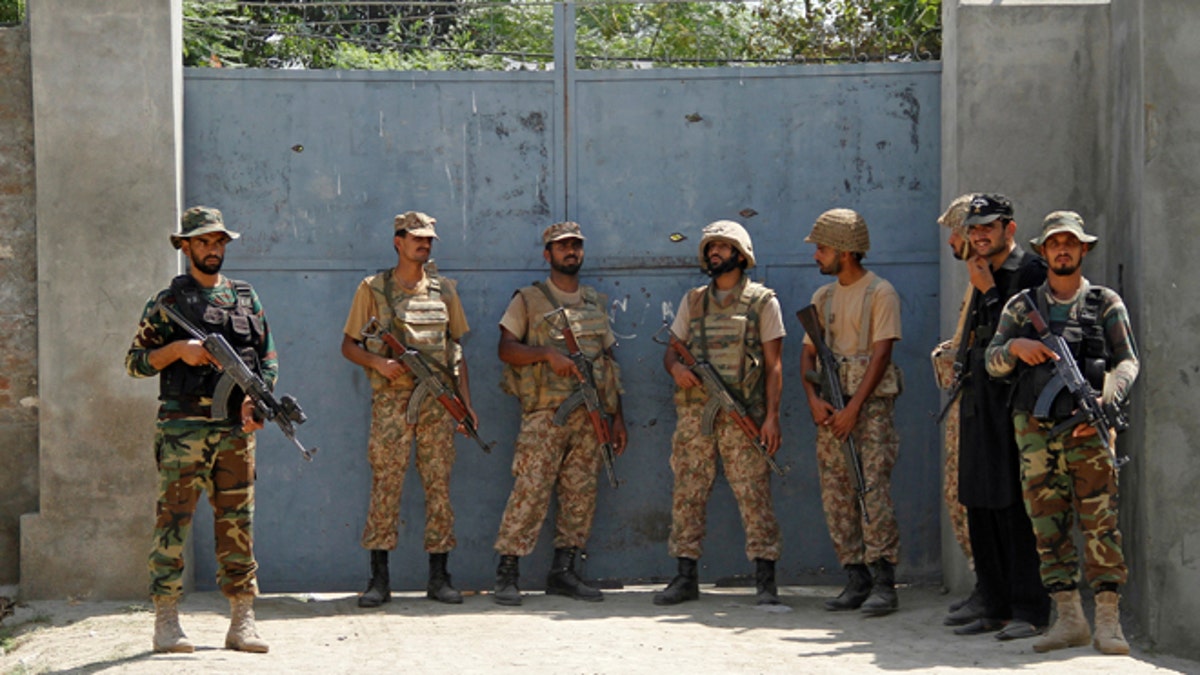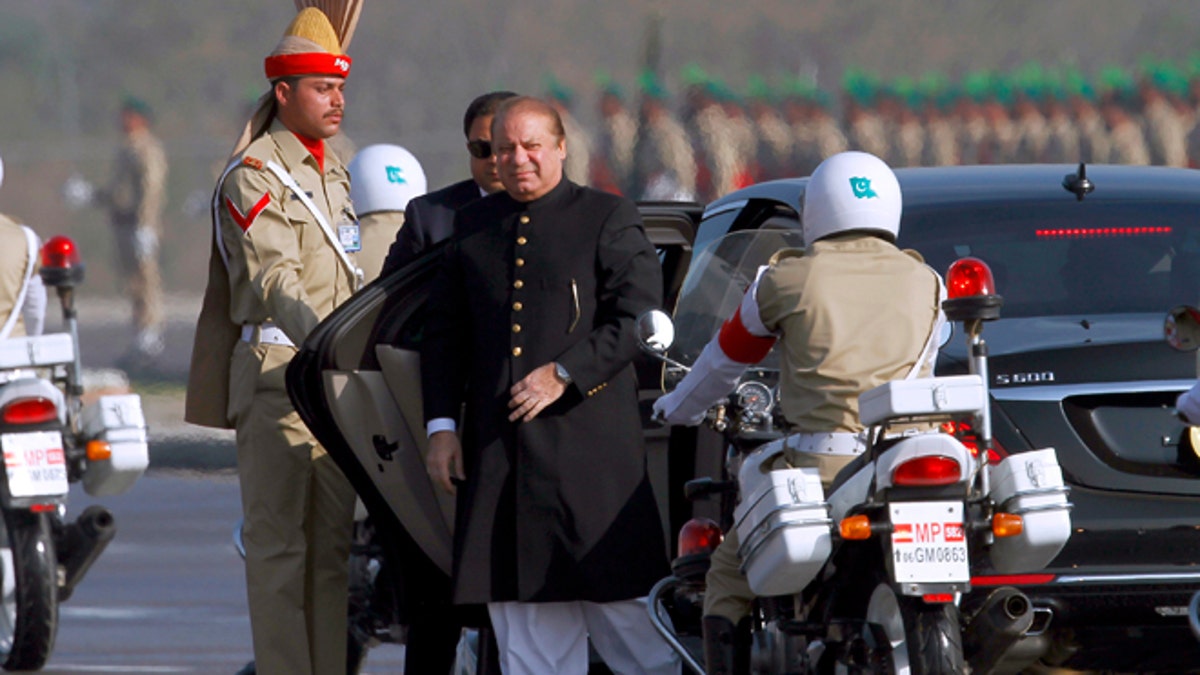
Pakistan Army soldiers stand guard at an entrance gate, after suicide bombers attacked a Christian neighborhood in Khyber Agency near Peshawar, Pakistan, September 2, 2016. (REUTERS/Fayaz Aziz)
Pakistan is one the verge of reinstating the controversial use of secret military courts to try civilian terror suspects – a move widely condemned from human rights activists across the globe and that reaffirms the power of the Pakistani armed forces in the fledgling democracy.
Unanimously approved by members of the National Assembly, the measure to try civilians in military courts was first instated as part Pakistan’s 20-point National Action Plan. That measure followed the December 2014 Taliban massacre at a Peshawar school that left 134 children dead. However, the measure expired this past January at the end of its two-year mandate. The new bill – officially called the 28th Constitutional Amendment Bill -- essentially extends the system that has been in place for the past two years.
While the measure still needs to be approved by Pakistan’s Senate early next week, experts say that this appears to be a mere formality given that a slew of recent terror attacks in the country has shifted public and political sentiment toward a stronger military approach.
A pair of suicide bombers last week attacked a Pakistani training facility belonging to the country's frontier troops, killing an officer. Also, an overnight cross-border attack in the Khyber tribal region killed two troops.

Pakistan's prime minister Nawaz Sharif, center, arrives to attend a military parade to mark Pakistan's Republic Day, in Islamabad, Pakistan, Thursday, March 23, 2017. (AP Photo/Anjum Naveed)
This follows a string of suicide attacks last month that killed more than 125 people in Pakistan and forced Islamabad to close the Pakistan-Afghan border. Calling it a "goodwill gesture," Prime Minister Nawaz Sharif finally ordered the opening of all the crossings along the boundary earlier this week.
“This is the same kind of thing that happened in the United States after 9/11,” Farhat Haq, a political science professor at Monmouth College, told Fox News. “The popular thought is that the military has the best control over the situation.”
Public support in Pakistan for the military courts may be high, but international observers worry that the tribunals foreshadow a return to the country’s military dictatorships.
The military courts are a confirmation of how the military is in the driver’s seat when it comes to going after terrorists.
Following Gen. Pervez Musharraf’s resignation as president in 2008, Pakistan has experienced its longest period of democratic rule since gaining independence from the British in 1947. Despite the gains made under Sharif’s rule, however, his promise to reform the country’s civilian courts has failed to materialize and the assurance that military courts were only a temporary measure also appears in jeopardy.
“The military has basically ruled the country almost since its inception,” Michael Kugelman, the deputy director and senior of associate for South Asia at the Wilson Center, told Fox News. “The military courts are a confirmation of how the military is in the driver’s seat when it comes to going after terrorists.”
“At the end of the day, these courts really cement the military’s power in Pakistan,” Kugelman added.
The power of Pakistan’s military – and the secretive nature of these courts – has also been widely rebuked by human rights groups who argue that the tribunals undermine the role of civilian courts, have no independent monitoring and violate Pakistan’s international human rights obligations under Article 14 of the International Covenant on Civil and Political. The article guarantees everyone the right to timely trial by a competent, independent and impartial tribunal.
Since being instituted in 2014, there have been numerous reports of defendants in the military courts allegedly being subjected to enforced disappearance, torture and other ill-treatment. In at least two cases, suspects who claimed to be under 18 years of age at the time of arrest were convicted without the military court providing any special protections to children.
Over the two-year period that the courts existed, the military convicted 274 people and issued 161 death sentences, with at least 17 people being executed following their convictions.
“The Pakistani government has a responsibility to prosecute those committing violent attacks, but secret, rights-violating military courts raise serious questions as to whether justice is being done,” Brad Adams, Asia director at Human Rights Watch, said in a press release. “Generating confidence in Pakistan’s criminal justice system and abiding by the rule of law means bringing those responsible for militant attacks before independence and impartial civilian courts.
